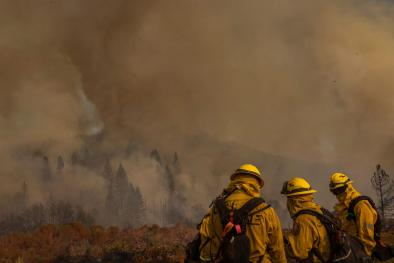Hot, Hotter, Hottest: Records Smashed in Hottest Days Ever

Last week, the world saw what may have been four of the hottest days ever recorded, a clear signal that dangerous climate change impacts are already present and widespread. Preliminary data saw all-time record temperatures set, and then immediately exceeded, on Monday, Tuesday, Wednesday, and peaking at 17.23°C (63.02°F) on Thursday, according to Climate Reanalyzer data, the highest since record keeping began 44 years ago. The extreme heat the first week of July built on the hottest June on record, in which the month’s average temperature leapt 0.5°C over the previous June record, set in 2019. The impacts have been deadly. More than 100 people have died due to heat exposure so far this year along the U.S.-Mexico border, and hundreds more in Mexico, the country’s health ministry said. Some 54 million Americans, primarily in the South and Southwest, are presently at risk due to extreme heat conditions, which can lead to heat stroke, increased risk from heart and respiratory disease, stroke, and other dangerous and potentially deadly health ailments, with impacts disproportionately borne by Indigenous and people of color, low-income people and laborers. The relentless heat comes as the onset of an El Niño weather pattern compounds the global warming caused by runaway burning of fossil fuels, warming Earth to its hottest temperatures since before the last ice age, 125,000 years ago. “If we persist in delaying key measures that are needed, I think we are moving into a catastrophic situation,” UN Secretary General Antonio Guterres said. And with the fossil fuel industry and its allies persisting in delaying real reductions in greenhouse gas emitting oil, gas, and coal consumption, increasingly unbearable summer heat will be the norm for the foreseeable future.
(New York Times $, AP, The Guardian, Gizmodo, Yale Climate Connections, Axios, The Hill, CNN, Washington Post $, BBC)
(Climate Signals background: Extreme heat and heatwaves)
To receive climate stories like this in your inbox daily click here to sign up for the Hot News Newsletter from Climate Nexus:
Related Content



